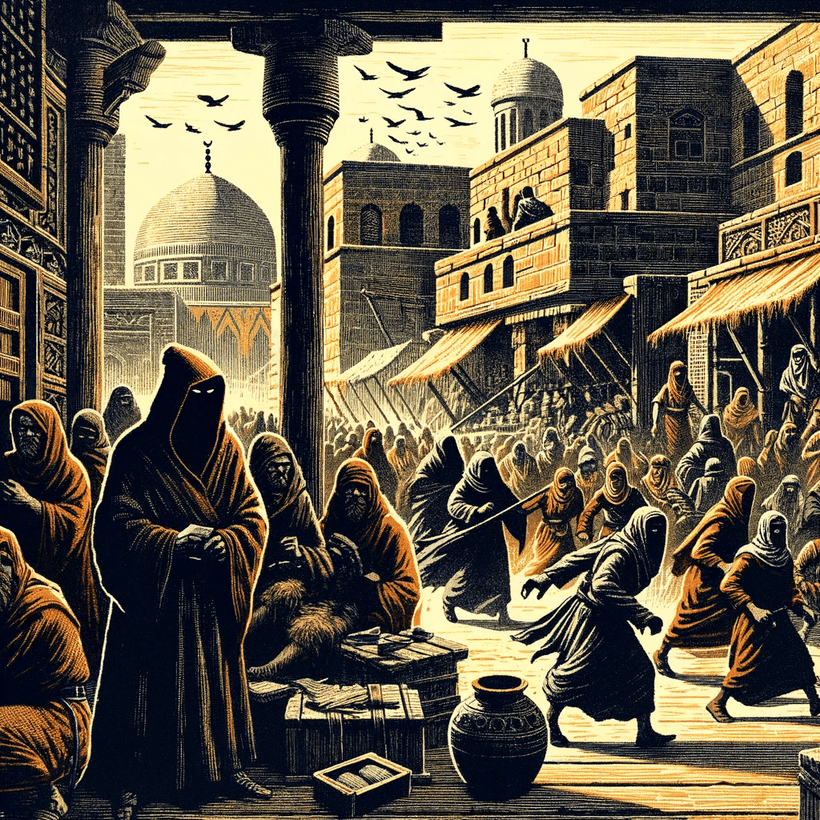 Espionage, often dubbed as the world’s second-oldest profession, is as ancient as human conflict itself. While the idea of spies conjures images of cloaked figures whispering secrets in shadowy corners or high-tech operatives conducting covert operations, the essence of espionage has always been about obtaining crucial information without the knowledge of the holder. This article delves into the nascent stages of espionage, tracing back to its rudimentary forms in ancient civilizations, and illustrates how it has evolved over the millennia.
Espionage, often dubbed as the world’s second-oldest profession, is as ancient as human conflict itself. While the idea of spies conjures images of cloaked figures whispering secrets in shadowy corners or high-tech operatives conducting covert operations, the essence of espionage has always been about obtaining crucial information without the knowledge of the holder. This article delves into the nascent stages of espionage, tracing back to its rudimentary forms in ancient civilizations, and illustrates how it has evolved over the millennia.
The first recorded instances of espionage date back to the ancient Near East, where city-states and emerging empires recognized the value of secret intelligence. In these early days, espionage was rudimentary, often involving scouts and messengers who would gather information about enemy movements, fortifications, and plans.
One of the earliest documented cases of espionage can be found in the stories of the Hebrew Bible, where Joshua sent two spies to gather intelligence on the city of Jericho. Their mission was to assess the city’s defenses and morale, information that was crucial for the Israelites’ subsequent conquest.
In ancient Egypt, pharaohs employed a network of spies to quell dissent and gather intelligence on foreign threats. These early spies would blend into the local populace, eavesdropping on conversations and observing troop movements. Similarly, in Mesopotamia, rulers used espionage to gain an advantage over their rivals, with spies playing key roles in the political and military strategies of empires like the Assyrians and Babylonians.
The professionalization of espionage took a significant leap in classical antiquity. The Greeks, particularly during the Peloponnesian War, developed sophisticated methods of espionage, including the use of codes, concealed messages, and secret agents. The story of the Trojan Horse, whether myth or reality, symbolizes this era’s cunning approach to warfare and intelligence.
In Rome, espionage became an integral part of statecraft. The Roman Empire had a well-organized network of spies, including the ‘frumentarii’ and ‘speculatores’, who conducted both domestic surveillance and foreign espionage. These operatives played a crucial role in maintaining the empire’s stability and security, gathering intelligence on potential rebellions, foreign threats, and even the activities of Roman citizens.
The concept of espionage was not confined to the Western world. In ancient China, Sun Tzu’s “The Art of War” dedicates an entire chapter to the use of spies, underscoring the importance of espionage in military strategy. Chinese emperors employed vast networks of spies for both internal security and external intelligence gathering, a practice that significantly influenced the outcomes of numerous dynastic conflicts and wars.
As Europe transitioned into the Middle Ages, espionage continued to evolve. Kingdoms and empires, from the Byzantines to the early Islamic caliphates, developed more organized and sophisticated intelligence networks. Spies in this era were not just gatherers of military intelligence but also played roles in political intrigue, serving as eyes and ears for kings, emperors, and sultans in their courts and beyond.
From the scouts of ancient city-states to the sophisticated spy networks of empires, the art of espionage has been a constant companion of human civilization. Its evolution mirrors the broader changes in warfare, politics, and technology, adapting to the needs and capabilities of each era. While the methods and tools of espionage have transformed dramatically over the centuries, the fundamental goal remains unchanged: to uncover the hidden, to know the unknown, and to wield knowledge as power.
Espionage, in its myriad forms, has shaped the course of history, silently dictating the outcomes of wars, the fates of empires, and the destiny of leaders. Its shadowy presence reminds us of the perpetual human quest for knowledge and the lengths to which societies will go to protect or expand their power. As we delve into the past to uncover the origins of espionage, we gain not just insight into a profession shrouded in secrecy but also a deeper understanding of the complexities of human nature and governance.





